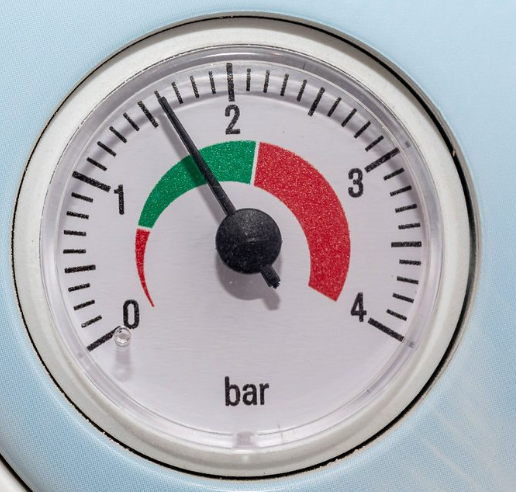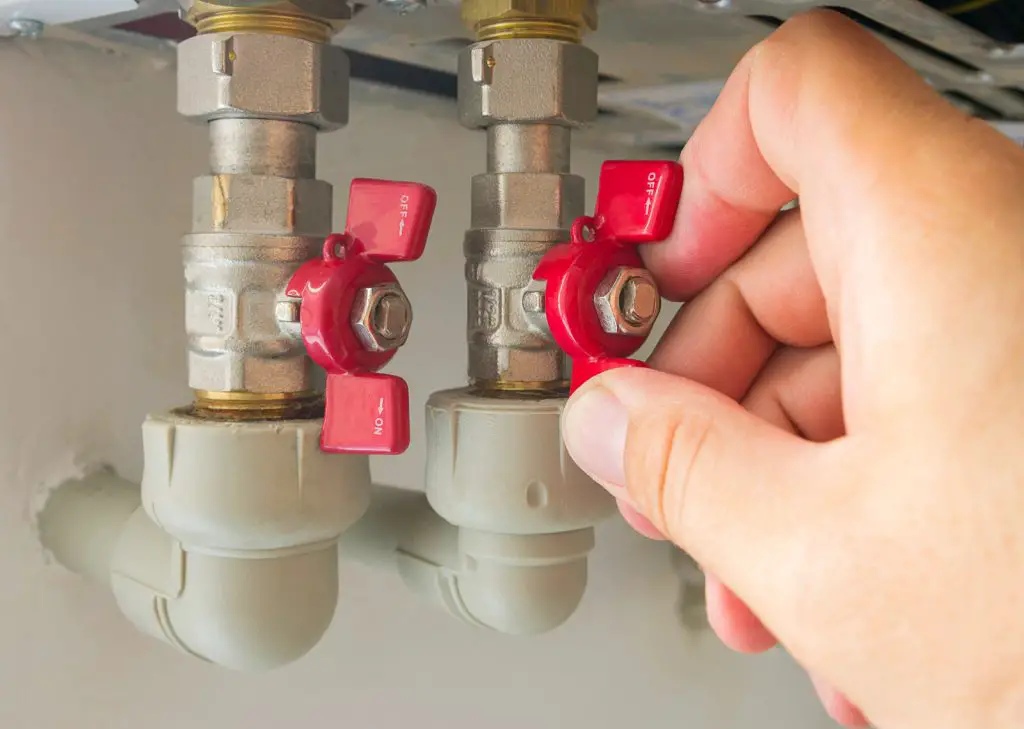Is your boiler not working or is displaying an error code? Low water pressure is one of the most common reasons for boiler faults. Don’t panic – increasing your boiler pressure is an easy DIY fix that you can do yourself in just a few minutes.
This guide will walk you through step-by-step how to safely increase the water pressure in your boiler to get it working again.
In a pressurised heating system, the correct pressure level is important and shouldn’t be too high or too low. If the system pressure gets too low, it will put a strain on the boiler and you will end up paying higher bills.
What Should Boiler Pressure Be When Heating is Off?
If the cause is not found and fixed, the boiler will eventually stop working and switch off altogether, and refuse to start. We show you how to increase boiler pressure and get it working again.

Why Is Correct Boiler Pressure Important?
Your boiler requires a consistent water pressure between 1 and 2 bar to function efficiently. This pressure pushes the heated water around your home’s radiators and pipes.
If the pressure drops too low, your boiler may not have enough force to circulate the hot water. On the other hand, if the pressure gets too high, it puts strain on the system components.
How To Check Your Boiler Pressure
Start by locating your boiler’s pressure gauge. On most combi boilers, this will be on the front of the unit. For system or conventional boilers, it may be near the hot water cylinder.
Look at the pressure reading – it should be between 1 and 2 bar when the boiler is cold. If it’s lower than 1 bar, the pressure is too low and needs increasing.
Will Boiler Pressure Go Down on Its Own?
How to increase boiler pressure
- Turn off the boiler and wait until the radiators have cooled.
- Find the filling loop which is on the boiler pipework.
- Open both the filling loop valves to let water into the system. Valves are open when they are in line with the pipes.
- Close both the valves when the pressure gauge rises to between 1 and 1.5 bar. Do this by turning them back to their previous positions.
- Switch the boiler back on. Wait for 2 minutes while it goes through its startup sequence.
- Press the reset button if any fault code comes on the display.
- Keep an eye on the pressure gauge. Over the next hour check that the pressure doesn’t get low again. If it does, you will need to call an engineer to find and fix the fault.
Video on how to increase boiler pressure
Is low boiler pressure dangerous?
Boiler pressure becomes low when it falls below 0.8 bar. Thankfully, it is not dangerous even if it goes down to zero on the gauge. Although it isn’t harmful, constant low pressure will make the boiler perform poorly. If you can’t find out why it has gone so low, it is important to call a gas safe engineer to resolve it.
Should Boiler Pressure Be Either Too High or Too Low?
What causes low pressure?
- Water leak.
- Faulty Expansion Vessel.
- Pressure relief valve.
- Bleeding air out of radiators.
Consequences of low boiler pressure
- No hot water in the taps.
- Boiler turns off.
- Radiators are cold.
- Boiler won’t turn back on.
- Boiler makes unfamiliar noises.
Common low pressure fault/error codes on boilers
- Ideal – F1
- Worcester Bosch 8000 – 1017W
- Vaillant – F22
- Viessmann – F1
- Alpha – E10
- Baxi – E119
- Ferroli – F37
- Potterton – E118

Is it time for a new boiler?
Signs such as constant low pressure, high pressure, loud operation noise, frequent breakdowns, radiators taking long to heat up, unusual odour, and higher energy bills all indicate that you need a new boiler. When you start seeing these signs, call a qualified gas engineer to inspect the boiler and its parts.
If you have an old boiler with problems like those mentioned above, it is time to seriously look into getting a brand new boiler.
The Trustpilot excellent rated Boilercentral.com is currently giving a Buy Now Pay in 2023 offer on new boiler purchases with No Deposit required. Check them out on the banner below:

FAQs
How often should I check boiler pressure? Check at least monthly for any fluctuations. Top up water if pressure drops below 1 bar.
Why does my combi boiler keep losing pressure? Frequent drops in pressure indicate a leak in the system. Have a Gas Safe engineer inspect for any faults.
My boiler pressure is zero/very low – what should I do? Switch off the boiler and refill the system via the filling loop. Bleed radiators once re-pressurised.
By following this complete guide to increasing your boiler pressure, you can get your hot water and heating back up and running in no time. Maintaining the correct pressure will keep your boiler working efficiently for years to come.
Read related articles:
